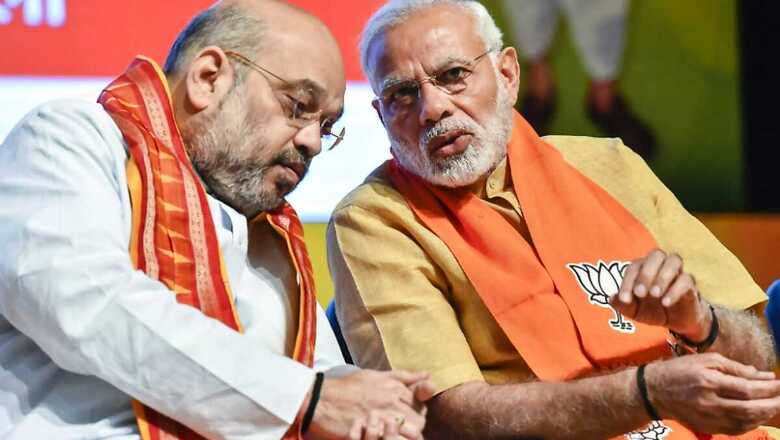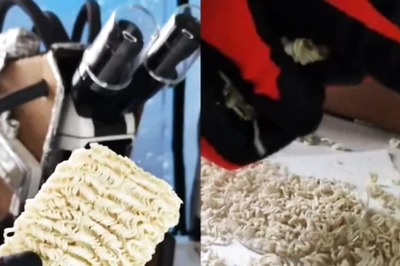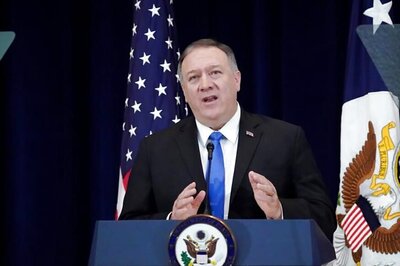Rising Political Opposition, SC Scanner: Centre May Revisit Vaccination Policy Once Supplies Improve

views
Amid rising political opposition and the Supreme Court scanner over its “liberalised vaccination policy”, the Centre may revisit the policy in July or August once vaccine supplies improve.
Government officials told News18 that going back to the old model may be considered, where it was procuring vaccines for the state governments, and may now do so both for the 45-plus and the 18-44 age categories.
“This will have to be a political call at the top level. Nothing has been decided yet but the conversation over the same has started at the bureaucratic level. The Centre is already deciding the allocation of vaccines for the 18-44 group among states but the states pay for those vaccines and not the Centre. The big issue is that most states want these vaccines for free, like they get for 45+ age group,” a senior official in the central government told News18, speaking on the condition of anonymity.
A fixed quota of vaccines for the private hospitals – that are charging people for the vaccine jabs after procuring them from the manufacturers — is expected to continue.
Nearly all opposition-ruled states have become united in their plea to the Centre to run the centralised vaccination exercise as earlier, citing the shortage of vaccines in the global and domestic market.
The exercise for the 18-44 group has come to a halt in some states due to the same. Besides the three Congress-ruled states and Maharashtra, Odisha CM Naveen Patnaik asked the Centre two days ago to centrally procure the vaccines for 18-44 group and supply them to states and spoke to Mamata Banerjee and Arvind Kejriwal about the same.
Andhra Pradesh Chief Minister Jagan Mohan Reddy wrote to the Kerala Chief Minister Pinarayi Vijayan on Thursday, saying the need of the hour was for the Centre to “take charge and responsibility of the vaccination drive the way it was happening earlier” and “centralised and coordinated drive supported by the states and a need for the CMs to speak in one voice.”
A key issue which could emerge in case of a policy change is whether the Centre would like to foot the cost of the vaccination for the 18-44 category as well in terms of supplies it may give to the state governments. States have already paid the manufacturers for the 18-44 group supplies expected in June.
The Centre has so far only supplied free doses to states for the 45+ category, which it procured from the manufacturers for about Rs 157 per dose, while states have paid Rs 300-Rs 400 per dose to Serum Institute and Bharat Biotech respectively for procuring vaccines for the 18-44 category.
An official said a middle-way may be arrived after discussions with the states at where the vaccines may be provided to states for the 18-44 category at a subsidised cost, which is the cost the Centre has to pay to the manufacturers for the vaccine.
“That will be arbitrary and unjust as Centre cannot charge us a price for vaccines for one category and give vaccines to us for free for another category. Centre has a Rs 35,000 Crore budget for vaccines,” a senior state government functionary in Rajasthan told News18.
The Supreme Court has raised strong questions over the vaccination policy, asking the Centre to file an affidavit in two weeks and will hear the case next later this month. The global tenders floated by over a dozen states for vaccines have got no positive response so far and they are getting only 25% of the total quota of produced vaccines in the country so far, which is proving to be inadequate given the huge demand in this age group.
The government in a statement recently issued by NITI Aayog member VK Paul had pointed out that global tenders issued by states had largely failed as there was no adequate supply of vaccines available from abroad.
The statement also said that the Centre had run a much-better organised vaccination programme till April for the 45+ age group but states were allowed from May to buy vaccines directly while opening the programme for the 18-44 category, given the incessant pressure from the state governments for more freedom and given that Health is a state subject. The statement in a way admitted that the new policy of letting states buy vaccines directly from manufacturers did not bring desired results.
Read all the Latest News, Breaking News and Coronavirus News here.




















Comments
0 comment